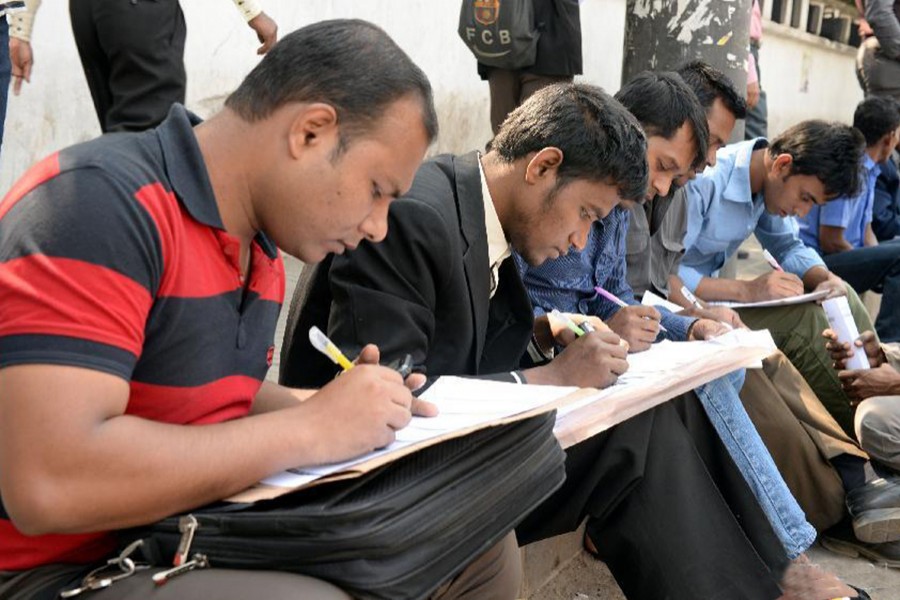Creating enough jobs, improving investment climate and ensuring financial stability would be major challenges for Bangladesh to meet her post-LDC (least developing country) requirements, opined economists and businesses.
For a sustainable transition to the developing country status, the country must seriously focus on ICT (information and communication technology) sector, as the apparel sector's advantage would expand for at least two decades, they said.
At the same time, they suggested enhancing intra-regional trade by taking advantage of a huge consumer base of 1.7 billion people in South Asia.
The observations and suggestions were made at an institutional dialogue, titled "Policy framework for post-LDC graduation of Bangladesh: business perspective", at a city hotel on Monday.
Federation of Bangladesh Chambers of Commerce and Industry (FBCCI) and Friedrich Naumann Stiftung, a German foundation, jointly organised the dialogue.
Commerce Minister Tofail Ahmed was present in the programme as the chief guest.
Presenting a keynote paper on the topic, former governor of Bangladesh Bank (BB) Dr Atiur Rahman said the country needs to create 1.6 million jobs annually until 2020, which public sector cannot create alone.
"Private sector is the solution. So, we should create a congenial atmosphere here, especially for SMEs (small and medium-sized enterprises)."
In this regard, he cited the example of how 0.3 million agents create around 0.9 million jobs in the remote areas.
Focusing on the financial stability, the former BB governor said banking sector has enough strength to deliver.
"But we've to ensure good governance alongside development of capital and insurance markets," he added.
Terming ICT sector a new game-changer in the coming years, the commerce minister said the economy largely depends on RMG industry, and its advantage can continue for the next two decades.
"ICT can be a new booming sector (like RMG) with the advantage of young and tech-savvy population."
He also said there is a little lacking in the ease of doing business area here, and the government is giving serious attention to overcome the challenge.
"Continuation of the government is the key, if we look at the development activities and economic growth over the last one decade."
"So, elect us again, we'll take the country's rating in ease of doing business bellow 100," he added.
Hailing various socio-economic progresses over the last several years, FBCCI President Shafiul Islam Mohiuddin said the government has been investing heavily for infrastructure development that will have a positive impact on the economy in the days to come.
Citing the recent 51 per cent wage-hike for apparel workers, he said they agreed to raise the minimum wage to Tk 8,000 from the Tk 5,300 although the buyers did not increase the product-buying rates at all.
"In this way, we're losing our competitiveness. I think the government should consider these factors and do something to protect or promote private sector," he added.
Senior Research Fellow of Bangladesh Institute of Development Studies (BIDS) Nazneen Ahmed emphasised training and skill development to utilise the advantage of demographic dividend of the country properly.
Principal Coordinator for Sustainable Development Goals (SDGs) Affairs of Prime Minister's Office (PMO) Abul Kalam Azad said the government is well aware of the challenges and has prepared long-term action plans to meet the post-LDC requirements.
Mentioning the importance of women in the country's overall economic development, he called upon the female entrepreneurs to come forward, as the government wants to keep 10 per cent of total land in the under-construction economic zones for them.


